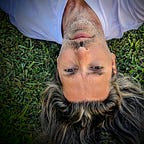Discernment
Some things are true and useful while others are simply false and yet others are true and not useful. Some people mean well and are helpful while others don't mean well and yet others mean well but are not helpful. Some actions are relevant and some are irrelevant.
The only way to be able to begin to answer the questions of how to know which things to use, which people to trust and which action to take is to define the context in which they are being asked.
You could define the context as all life in the universe throughout all time or your own life today. One is too small to be useful, the other is too big. I propose something along the lines of: “Which future — 50 years hence — are you working on — for humanity — ?”
If broken down, this question can be handled and answered playfully. Alone, or with a group of people along the following dimensions:
1) How do we organise supply in fifty years?
How do we source the material, refine it into products and distribute these? Which products do we produce and why? Who receives which products and why?
2) How do we structure society in fifty years?
How do we make decisions on a local level as well as on a global level? Who makes these decisions? How are they enforced and legitimated?
3) How do we relate to people in fifty years?
Do we have families and romantic relationships? Do we have companies or projects? How do we communicate? Do we meet in person or do we use technology (and what technology)?
4) How do we nurture the body in fifty years?
What do we eat? How do we stay healthy? How do we re-instate health once and if it breaks down?
5) How do we manage knowledge in fifty years?
How do we agree on what becomes knowledge? How do we spread knowledge, give access to it, teach it?
6) How do we mind the spirit in fifty years?
What do we do with those things that are more than the sum total of our atoms?
